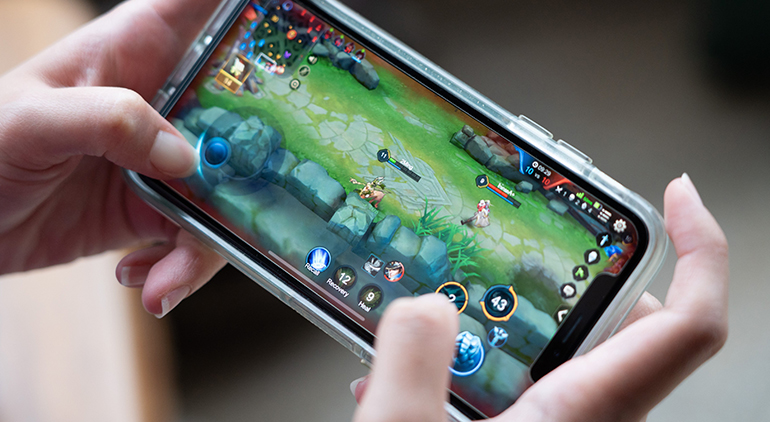Mobile gaming is one of the strongest segments of the gaming market today and shows no signs of slowing down. Even people who have little to no interest in playing console or PC games are happy to download multiple gaming apps on their phones. These games are seen less as a gaming hobby and more as a casual activity that can be played in spare moments of time.
Of course, there are also hardcore gamers who are happy to have another gaming outlet and who are even willing to buy specialized gaming phones. Companies are also offering gaming ear buds as a more portable substitute for the gaming headsets that are ubiquitous among serious gamers.
Between these two groups, it’s easy to see why there is such a healthy market for a diverse range of games. From intense FPS games to grandma’s favorite cross stitch puzzle games and everything in between, developers have responded to market demands.
In this article, we’re going to explore the latest trends in mobile gaming and try to pinpoint where it might be developing in the future.
Casino Gaming
Online casinos have been popular for many years, but the recent modernization of gambling laws in many countries, including the US and Canada, has made them more accessible. Online casinos have massive libraries of slot machine games, table games and other games of chance like bingo and keno.
Until recently, most online casinos were primarily optimized for desktop use. Now that these brands have realized that the future is in mobile gaming, online casino apps have made great progress in expanding their mobile libraries. The game portfolio available on mobile for many of these online casinos can now compete with their desktop sites.
Gacha
Gacha games are one of the more unusual and controversial trends in mobile gaming. Gacha games are essentially digital claw machines or loot boxes. The end goal of every gacha game is to collect all of the characters, items or sets, but they all have different themes, aesthetics or subjects.
Gacha games are controversial because they encourage people to spend more and more money in order to acquire virtual prizes. The same can be said of most games with in-app purchases, though, so it is hard to see exactly why gacha games receive more attention. There is, however, little chance of gacha games losing popularity in the coming years.
Augmented Reality
When augmented reality was first being presented to consumers as a feature, many of the uses were fairly boring. For example, one of Google Glass’s first selling points was that consumers would be able to use them to compare prices while shopping at the store. Yawn. It wasn’t until augmented reality was used in mobile gaming that people began to get excited.
Augmented reality (AR) in mobile gaming is one of the biggest trends of the last few years and it is going to continue as the capabilities of even basic phones increase. One of the reasons why AR is outpacing virtual reality is that it doesn’t require specialized headsets. AR is also less immersive than VR, so it’s possible to enjoy AR games in public without any potentially awkward moments.
Fall of Hyper-Casual Games
Hyper-casual games are mobile games that are incredibly easy to play, typically free and use an infinite loop mechanic so they can be played for as long as the user wants. They also have simple graphics. Until 2021, hyper-casual games seemed on track to dominate the market for years to come. Since 2021, however, these games have finally started to see a decline in downloads and overall playtime.
We see the current decrease in downloads to be the start of a major trend. Hyper-casual games will always have a user base, but many people have come to realize that they prefer a game that is interesting and attractive to look at instead of just mindless.
RPG and Strategy Games Growing in Popularity
RPG games require more investment in terms of time and attention, but they are also more rewarding for players. These games involve more storytelling and puzzle solving, which makes them far more engaging for players.
Most mobile games make their revenue through in-app purchases. RPG and strategy games are able to combine in-app purchase functionality with a subscription model. Players are only willing to justify paying a subscription for a game that is of a high enough quality. This is a smart model, and the added time and expenses for developers will be readily compensated by satisfied players.
